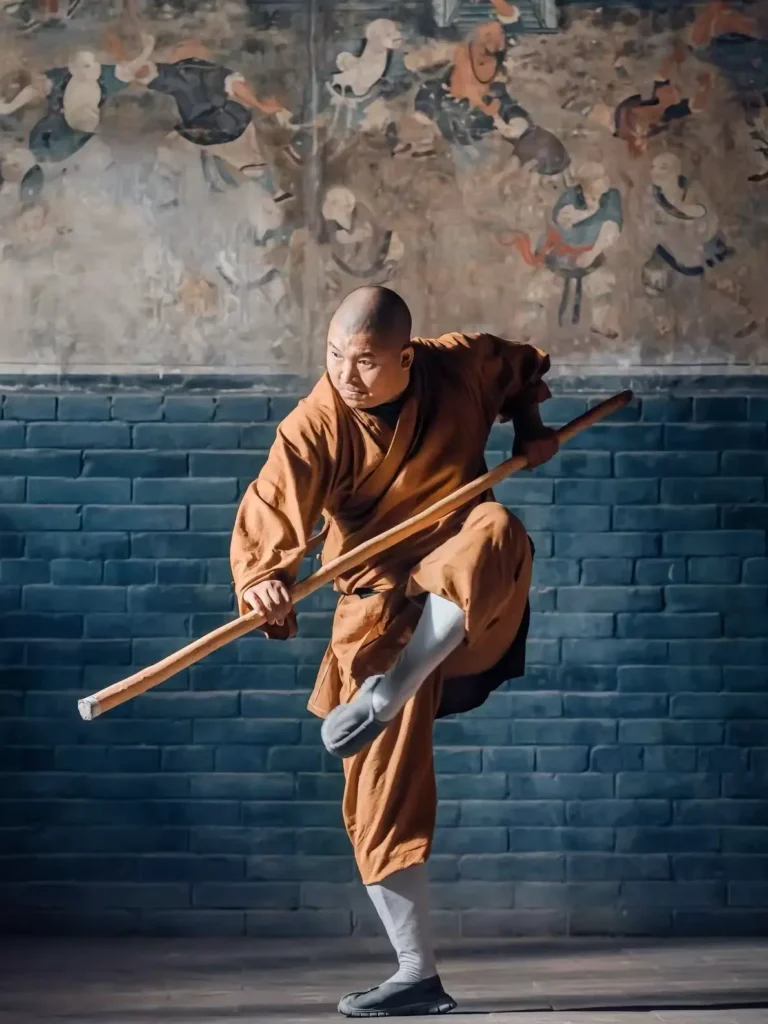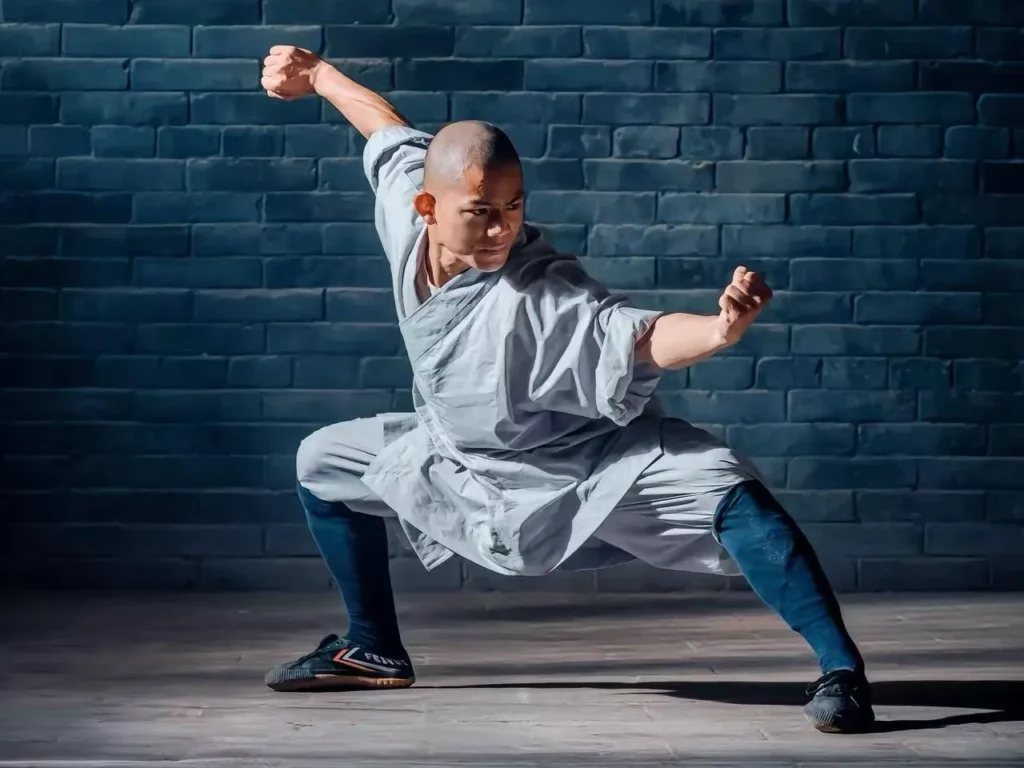English
Do you want to learn Kung Fu?
那 你 一定 要 知道 少林寺!这里 是 中国 功夫 的 故乡,很 多 人 来 这里 学 少林 功夫。
English
Then you must know about Shaolin Temple! This is the birthplace of Chinese Kung Fu, and many people come here to learn Shaolin Kung Fu.


English
Where is Shaolin Temple?
English
Location: It is on Song Mountain in Henan, China.
English
History: It is over 1,500 years old, very ancient!
English
Environment: There are many trees on the mountain, the air is fresh, and the scenery is beautiful.
特别 之处: 这里的 和尚 不只 念经,还 会 超 厉害 的功夫!
English
Special Feature: The monks here don’t just chant scriptures; they also know incredible Kung Fu!


English
What do Shaolin monks practice?
English
Shaolin monks train every day.
English
They practice fist techniques, which are very powerful.
English
They practice staff techniques, which look very impressive.
English
They also practice hard qigong and can break bricks with their hands.
English
Why do they practice Kung Fu?
练习 少林功夫 可以 让 身体 更 强壮,也 可以 让 心 更 平静。
English
Practicing Shaolin Kung Fu makes the body stronger and the mind calmer.
和尚 练功 不是 为了 打架,而是 让 自己 更 有 力量,更 冷静。
English
The monks don’t practice to fight, but to become stronger and more peaceful.
English
Interesting Facts
他们 每天 早上 4 点 就 起床 练功,比 上学 还 早!
English
They wake up at 4 a.m. every day to train, even earlier than school!
很多 外国 人 也 来 少林寺 学 功夫,有的 还 成 了 少林和尚!
English
Many foreigners also come to Shaolin Temple to learn Kung Fu, and some even become Shaolin monks!
English
Do you want to try?
别 着急 打拳,可以 先 练 “马步”—— 像 坐 在 空气 椅子 上 一样。试试 能 坚持 5 秒 吗?
English
Don’t rush to throw punches! You can start by practicing the “horse stance” – like sitting on an invisible chair. Try holding it for 5 seconds!
语法点 (Grammar Points)
1. 不只…还 – Not only… but also
不只 + Verb 1, 还 + Verb 2 – Used to indicate that something is not only one thing, but also another.
文中 (In text):
– 这里的和尚不只念经,还会超厉害的功夫。(The monks here not only chant sutras, but also do very impressive Kung Fu.)
例 (Example):
– 她不只 喜欢 猫,还喜欢 狗。(She not only likes cats, but also likes dogs.)
2. 不是…而是… – Not … but …
不是 + Noun/Verb 1, 而是 + Noun/Verb 2 – Used to correct or emphasise that something is not one thing, but another
文中 (In text):
– 和尚练功不是为了打架,而是为了让自己更有力量,更冷静。(The monks don’t practice to fight, but to become stronger and more peaceful.)
例 (Example):
– 我不是 想 吃 巧克力,而是想 喝 茶。(I don’t want to eat chocolate, but I want to drink tea.)
3. 比…还… – More than…
比 + Noun/Verb + 还 + Adjective/Verb – Used to compare and emphasize that something is more than something else in a certain aspect.
文中 (In text):
– 他们早上4点就起床练功,比上学还早!(They wake up at 4 AM to practice Kung Fu, even earlier than you go to school!)
例 (Example):
– 今天 的 天气 比 昨天 还 冷。(Today’s weather is even colder than yesterday.)
4. 像…一样 – Like…
像 + Noun/Verb + 一样 – Used to compare something to something else, meaning “like” or “as if.”
文中 (In text):
– 可以先练”马步”——像坐在空气椅子上一样。(You can start by practicing the “horse stance” – like sitting on an air chair.)
例 (Example):
– 他 跑 得 像 风 一样 快。(He runs as fast as the wind.)


